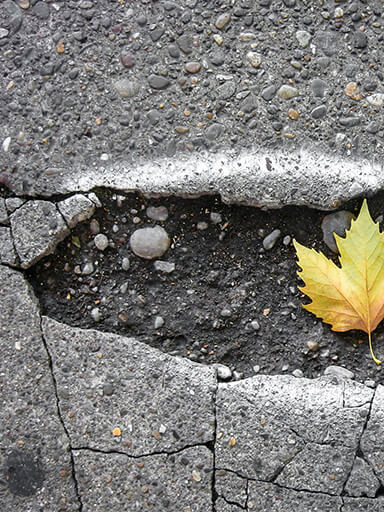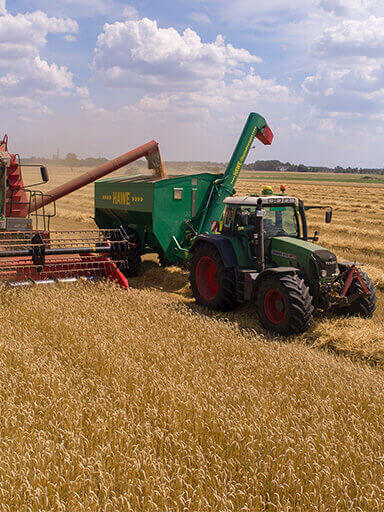If you’ve had an accident at work, it’s important to know what to do next.
To start, report the accident to your employer. By law, they are required to keep and use an accident book.
If you sustained any injuries, seek medical attention as soon as you can. If your injuries are serious, attend A&E.
If you can, take photos of where your accident occurred.
Also, if possible, take photos of the injuries sustained and obtain the details of any witnesses to your accident. Get their names and addresses as these details will help you make your injury at work claim.
Lastly, consult an experienced Accident at Work Solicitor. You may be able to make your claim on a no win no fee basis.
Talk to a No win No fee SolicitorShould I consult my work accident and injury with a solicitor?
Consulting you workplace accident and injuries with a specialist Solicitor can be beneficial for several reasons.
First, a work injury solicitor can help you understand your legal rights and obligations in your situation. They can advise you on whether you may be entitled to compensation or benefits. Moreover, they can help you navigate the legal process involved in making a claim.
Additionally, a work accident solicitor can help you gather and present evidence to support your claim. They can liaise with your employer or their insurance company on your behalf, and negotiate an appropriate settlement.
Finally, a solicitor can provide you with peace of mind and support during what can be a stressful and challenging time. They can handle the legal aspects of your case, allowing you to focus on your recovery.
Consulting your personal injury claim with a work accident solicitor can help ensure that you receive the compensation and support you deserve after your accident. It can also help you navigate the complex legal system with confidence and ease.
Why is it important to report accidents at work?
Reporting accidents at work is important for several reasons.
Firstly, it is a legal requirement under the Reporting of Injuries, Diseases and Dangerous Occurrences Regulations (RIDDOR) 2013. This regulation requires employers, self-employed individuals, and people in control of work premises to report certain types of workplace accidents and incidents to the relevant authorities. Failure to comply with this regulation can result in legal action against the employer by the Health and Safety Executive (HSE).
Secondly, reporting accidents at work allows employers to investigate and take steps to prevent similar incidents from happening in the future. This helps to ensure a safer workplace for all employees. It is therefore very important to report your injuries.
Thirdly, reporting accidents can also help to establish liability and support any potential work compensation claim. If you don’t report the accident, it can be difficult to prove that it occurred. You may struggle to demonstrate that your injuries were a result of the workplace accident.
Lastly, if an accident at work is not reported, it can lead to further health problems or complications that could have been prevented or treated earlier.
Reporting accidents at work is crucial for ensuring a safer workplace. It is also important for fulfilling legal obligations, establishing liability for potential work compensation claims, and preventing further health problems.
Can I sue my employer for my accident at work?
To be able to bring in a claim for your accident against your employer, you need prove that they were negligent.
You also need to be able to show that their negligence caused your injuries.
Just because you have had an accident at work, does not automatically mean that you definitely have a claim. You need to be able to demonstrate that someone else was negligent.
Examples
If, for instance, you stepped outside your office, tripped over your own feet, fell and broke your wrist, you wouldn’t be able to claim against your employer. This is because the reason for your fall was your own fault.
If however, you tripped over a box of paper that had been left there by a co-worker, who has not tidied it away properly, you would likely be able to make a claim.
Furthermore, if your co-worker had carelessly left it in a workplace walkway, you would be able to make a claim against your employer. Alternatively, the person who owns the walkway.
In summary, whether you can make a claim or not depends on who was responsible for your trip and fall.
This is why it is always a good idea to discuss your situation with an experienced solicitor.
They will assess your case and confirm if you can make an injury at work compensation claim.
Start a no win no fee accident at work compensation claim.
Start your No win No fee ClaimWhat if my workplace is not under the direct control of my employer?
If your workplace is not under the direct control of your employer, for example, if you are an agency worker or self-employed and your employer only pays your salary, then it’s possible that someone else may be responsible for your accident.
Depending on your relationship with the person who owns the place where the accident occurred (i.e. the occupier of those premises). They may be the ones responsible instead of your employer.
In this case, you may be able to make a claim against them under the Occupiers Liability Act instead of Workplace Legislation.
What if the accident was partly my fault?
In cases where both you and someone else are at fault for an accident, you may still be eligible for compensation.
However, the total amount of compensation may be reduced by a certain percentage, for example, 25%. This means that instead of receiving the full amount, you will receive 75% of the compensation.
This is known as contributory negligence, as you have contributed to the accident. This may happen at work if you have not followed your training. An example would be standing too close to equipment or machines as a construction worker.
The law reduces your claim by a certain percentage, reasoning that you should have taken more care of yourself. Therefore, the injuries sustained are not solely your employer’s fault.
As a result, you may not receive the full 100% of the compensation.
It’s important to note that even if you are partially at fault for your accident and injuries, it should not discourage you from bringing your claim.
As long as your employer has a legal duty to ensure your safety, they can still be held liable for any injuries sustained at work.
It’s definitely worth seeking the advice of a work accident solicitor. They can assess your case and determine your eligibility for compensation.
Our team can advise you on the best course of action to take to maximise your chances of a successful claim.
Speak to our teamHow long after an accident at work can I claim?
The general rule is that you have 3 years from the date of the accident to make a claim for compensation. This is known as the limitation period. It applies to most workplace accident claims.
However, there are some exceptions to this rule. For example, if you were a minor (under 18) at the time of the accident, you will have 3 years from your 18th birthday to make a claim.
Similarly, if the accident resulted in a serious injury or illness that was not immediately apparent, you may have a longer period of time to make a claim.
It’s important to note that the claims process can take some time. So, it’s best to start the process as soon as possible after the accident.
This will give you the best chance of gathering evidence and presenting your work accident case in a timely manner.
If you’re unsure about whether you’re still within the time limit, consult with a qualified solicitor who can advise you on your specific situation.
Contact Grieves Solicitors on our Freephone: 0800 0747 644, or request a call back on our Accident at Work page.
How much will making a claim cost me?
Many solicitors, including our firm, offer services on a no win, no fee basis.
This means that you won’t be required to pay any upfront charges to start your claim.
If your claim is successful, the solicitor will deduct a legal success fee of up to 25% from your compensation amount, but you will never be out of pocket.
Additionally, some solicitors may recommend that you take out an After the Event (ATE) insurance policy. This can provide you with financial protection if your claim is unsuccessful.
If you choose to take out an ATE insurance policy, the premium for this policy will also be deducted from your compensation amount at the end of your claim.
Who pays compensation for accident at work?
The Employers’ Liability (Compulsory Insurance) Act 1969 dictates that the vast majority of UK employers must have insurance. This insurance covers any claims made by staff as a direct result of an accident at work.
There are a few exceptions to the rule; these include:
- public organisations such as government departments and local authorities;
- health service organisations, such as NHS Trusts;
- other organisations funded using public money, for instance, magistrates’ court committees;
However, all these bodies have their own compensation schemes in which the money is paid using public funds.
Employers’ liability insurance is designed to safeguard your rights to damages, regardless of the cause of the work accident. Its role is also to ensure employers can cover the cost of claims made by their employees.
Your employer is legally required to be insured for at least £5 million.
Regardless of the cause of your work accident (including industrial disease), the Employer Liability Act safeguards your right to damages. Whilst at the same time, ensuring your employer is capable of covering the cost of your claim.
Your employer must display a copy of their insurance on their business premises or make an electronic copy available to staff.
How do I know if my employer has Employers Liability Insurance?
Your employer must display a copy of their insurance certificate on their business premises.
Alternatively, they must ensure staff know where to find an electronic copy of their insurance certification.
If you can’t find your employer’s insurance certificate and are concerned the law is being broken, you may contact your local Health & Safety Executive (HSE) office.
You can also speak to one of our experienced work accident solicitors for legal advice and guidance.
Call 0800 0747 644 for a free, no-obligation discussion with an expert.





